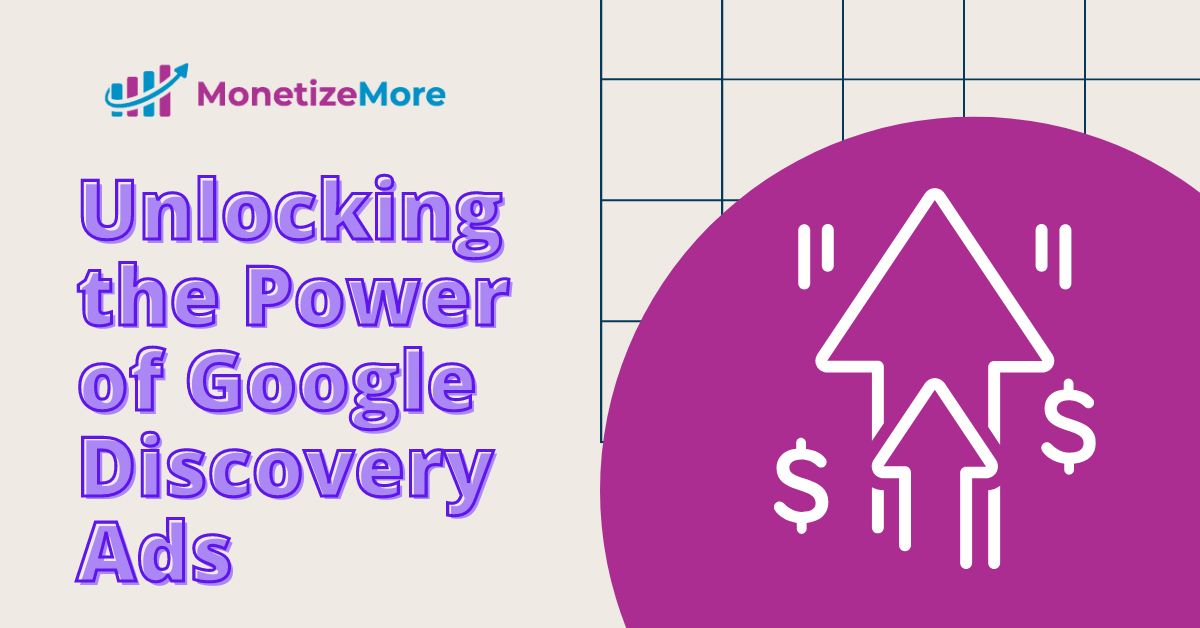Having to reach more of your desired audiences in a single Ad campaign has never been more simple and more exciting, thanks to Google Discovery Ads.
Since its launch in 2019, Google Discovery Ads have been creating a lot of buzz. Though not the first campaign type that comes to mind, but not to be pushed aside as well when it comes to building marketing strategy.
With Discovery Ads, reaching a whole lot of customers across Google’s feeds to achieve your performance goals in Google Ads is within grasp.
When do we use Discovery Ads?
- When we want to drive conversions with media at scale, discovery ads can be used to drive sales, sign-ups, or more website visits.
- When we want to reach new customers with our media, by sharing visually rich ads across feeds on Google platforms, it can help attract potential new customers when they are open to trying new products.
- When we want to reconnect with our most valued customers. As previous customers who have interacted with the ads like making a purchase. Discovery ads provide these customers with more relevant and rich ads to keep them attracted and potentially engaged again.
Benefits of using Discovery Ads

- Reach more audiences with a single ad campaign. Reaching up to almost 3 billion people monthly on the YouTube Home and Watch Next feeds, Discover and the Gmail Promotions and Social tabs, we can now reach more potential customers since they will be browsing everything from the hottest fashion trends to the most viral topic on popular Google properties.
- Drive engagement with richer, more relevant ads. With the help of Google’s unique understanding of customer intent. Site visitors will now be shown more relevant and personalized ads when they are most interested to learn about your products and services.
- Visually rich ads rendered natively across Google properties at scale. When consumers browse their favorite content, the ad layouts presented rely on machine learning to show assets smoothly across all devices to help spark more customer interest with the least possible effort and time.
- Automated bidding options to meet your media performance goals. Maximize conversions bidding, Target CPA, or Target ROAS can be used to optimize campaign bids to media marketing objectives. Optimized targeting can be enabled to help with audience performance.
Important Updates from Google
- Spark audience interest with product feeds. Product feeds have expanded their availability to all Discovery advertisers. Consumers can now be shown items based on their interests and intent. Retailers can use lifestyle images and short text with their Google Merchant Center catalog to deliver more relevant ads. Research shows that by adding product feeds to Discovery ads with sales or lead gen goals, advertisers can achieve 45% more conversions at a similar CPA on average.
- Turn data into results with better reporting and measurement. With product-level reporting launching soon, advertisers can track how their Google Merchant Center catalog items are performing in product feeds against metrics like impressions or clicks.
- Measure incremental impact with Conversion Lift experiments. To know whether campaigns are really making an impact or not, Conversion Lift experiments were introduced. This is Google’s latest measurement solution to help advertisers measure the incremental conversions based on either users or geography.
Difference between Discovery ads and Display ads
A key difference between Google Discovery ads and Google Display is who the ads are reaching and where they are shown.
Discovery ads are more for people who are ready to discover and engage.
Whereas Display ads are great for general awareness, Whether someone is interested or not, the ads will just be displayed.
Creating Effective Discovery Ads
Creating effective Discovery ads is essential for publishers looking to maximize their ad revenue. By following these tips and best practices, publishers can create visually appealing ads that grab the user’s attention and drive conversions.
- Use Eye-Catching Visuals: Visuals are the first thing that users notice when browsing the internet, so it’s important to use eye-catching images or videos that relate to the ad’s content. Use high-quality images or videos with bold colors and contrast to stand out from other ads.
- Compelling Headlines and Descriptions: A catchy headline and description are crucial to capture the user’s interest and encourage them to engage with the ad. Use action-oriented language and emphasize the benefits of the product or service being advertised.
- Target the Right Audience: Targeting the right audience is critical to the success of Discovery ads. Use Google’s targeting options to reach the right people based on their interests, behaviors, and demographics. This will ensure that the ad is being shown to people who are most likely to engage with it.
- Test Different Ad Formats: Experiment with different ad formats, such as single images, carousels, or video ads, to see what works best for your audience. Testing different formats will help you understand what type of content your audience prefers and increase the effectiveness of your Discovery ads.
- Optimize for Mobile: With more and more people browsing the internet on their mobile devices, it’s important to ensure that your Discovery ads are optimized for mobile. Use responsive design and test the ad’s performance on different screen sizes to ensure that it looks great on all devices.
Optimizing Ad Performance
- Conduct A/B Testing: Publishers should conduct A/B testing to compare the performance of different ad variations. This can involve testing different headlines, images, or calls to action to see which combination drives the most clicks and conversions.
- Track Metrics: Tracking metrics such as click-through rates, conversion rates, and cost-per-click can help publishers understand the effectiveness of their ads. Use Google Ads or other analytics tools to track these metrics and identify areas for improvement.
- Optimize Ad Placement: Ad placement can have a significant impact on performance. Publishers should experiment with different ad placements, such as above or below the fold, to see which placement drives the most clicks and conversions.
- Use Retargeting: Retargeting allows publishers to show ads to users who have previously interacted with their website or ads. This can be an effective way to increase conversions by reminding users of products or services they have previously viewed.
- Make Data-Driven Decisions: Use data to make informed decisions about ad performance. Analyze metrics, conduct A/B testing, and use audience insights to optimize ad performance and maximize revenue.
By implementing these tips and making data-driven decisions, publishers can optimize their ad performance and maximize revenue from Discovery ads.
Related Reads
When to put ads on site?
Mediavine vs AdSense vs MonetizeMore
FAQ
How can I make my Discovery ads stand out to my audience?
To make your Discovery ads stand out, use high-quality visuals, compelling headlines and descriptions, and target the right audience. Experiment with different ad formats and test different variations to see what resonates best with your audience.
How can I ensure that my Discovery ads are reaching the right audience?
Use Google's targeting options to reach the right audience based on their interests, behaviors, and demographics. This will ensure that your ad is being shown to people who are most likely to engage with it.
How can I track the effectiveness of my Discovery ads?
Use Google Ads or other analytics tools to track metrics such as click-through rates, conversion rates, and cost-per-click. This will help you understand the effectiveness of your ads and identify areas for improvement. Conduct A/B testing to compare different ad variations and make data-driven decisions to optimize ad performance.
With over ten years at the forefront of programmatic advertising, Aleesha Jacob is a renowned Ad-Tech expert, blending innovative strategies with cutting-edge technology. Her insights have reshaped programmatic advertising, leading to groundbreaking campaigns and 10X ROI increases for publishers and global brands. She believes in setting new standards in dynamic ad targeting and optimization.


